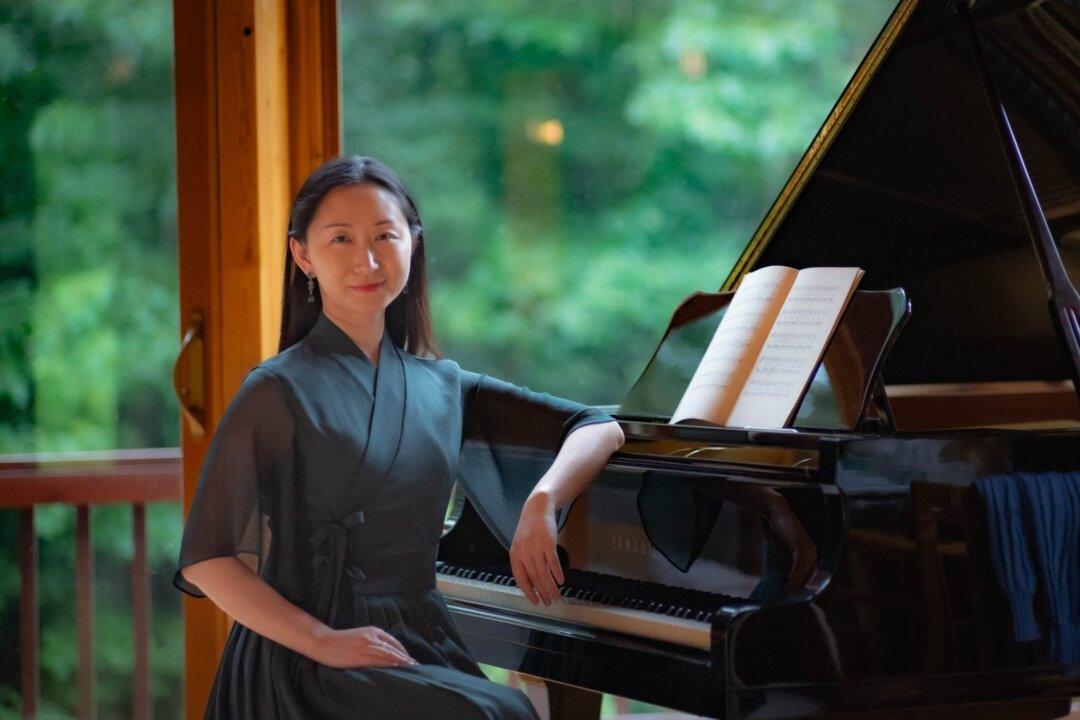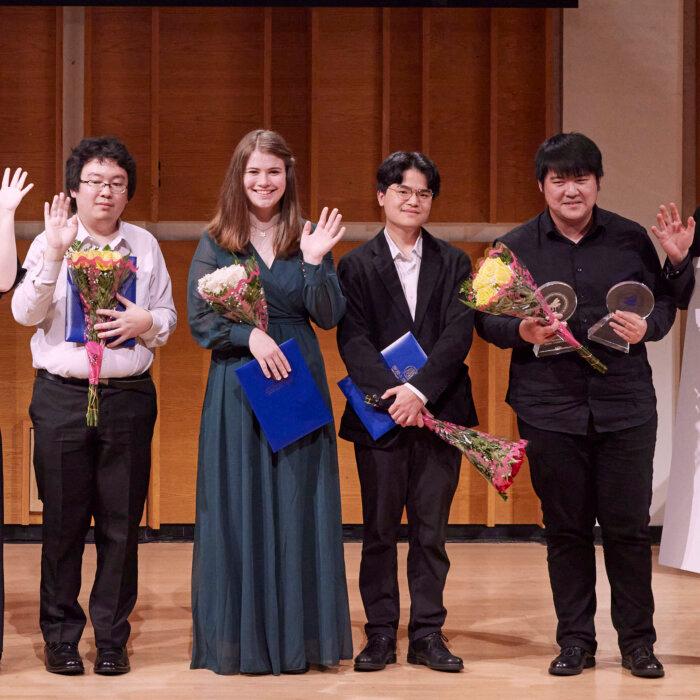On Aug. 19, dozens of pianists around the world received for the first time the piano score for “Holy Grace,” a work that will premiere in October during the 2024 NTD International Piano Competition in New York City.
Fans of the competition series may remember that each competition year, a unique new work—featuring a blend of Eastern and Western classical music—is commissioned and premiered. But this year’s piece is different. “Holy Grace,” a symphonic poem, is classical Chinese music for the piano.
Qin Yuan, an expert in transcribing ancient Chinese music for the piano, arranged “Holy Grace” from a melody authored by D.F., the artistic director of world-renowned Shen Yun Performing Arts.
Qin shared with The Epoch Times details of the process, including pivotal moments in the score, the works that inspired her, and her vision for the piece. Much of this will not be revealed until the competition takes place in New York City on Oct. 14 through 19 so as to not spoil the experience for pianists who will endeavor to play the piece, but what is clear is that there is much to discover and much to be gained.
At first glance, the score may look deceptively simple. In fact, several passages are, on a technical level, easy to play.
But soon enough, it becomes evident that the challenge of this piece lies not in the keyboard work, but in the pianist’s artistry. As all musicians know, just because you’ve hit the right notes, it doesn’t mean you’ve found the right sound.
‘Holy Grace’
A symphonic poem, also called a tone poem, is a one-movement musical form created in the late 19th century that bridges the space between music, fine arts, poetry, literature, and drama; and the works that inspired Qin included classical Chinese poems and Ming Dynasty landscape brush paintings. She has been a pianist with Shen Yun since 2017 and is immersed in the traditional Chinese culture that this New York-based company has taken as its mission to revive.But the themes and ideas in “Holy Grace” are entirely universal.
“The prime thing this piece conveys is the Creator’s love for humanity,” Qin said in Chinese. “It should leave the performer and the listener with a sense of beauty and gratitude.”
How does one begin to explain God’s love?
Sometimes, it’s evident through joy, Qin said, but it’s also evident in suffering.
“In this chaotic world full of wars and disasters and illness, it’s clear a lot of things are out of our control,” she said. But even in the darkest of storms, we hold on when we see the light of hope—that’s faith, and but one way in which God’s love for humanity manifests, Qin said.
When one prays, hopes, and reflects, sometimes an answer just appears—this is yet another way that we can sense God watching over humanity with endless compassion, she said. No matter where we are or what we’ve done, “as long as you have the heart to find the truth, there is always a response,” Qin said.
“Whether good times or bad, people are never perfect. But when we repent and have the willingness to correct our mistakes, in these moments we can feel God’s love—as forgiveness, as guidance, and even the absolution of sin,” she said. “If even in the midst of suffering we can keep our compassion, have a heart of gratitude and humility and kindness, we find the path forward.”
God reaches out to us in different ways, if we are only willing to listen, Qin said, and when we do, the response is clear and inspiring.
“My starting point was to bring the pianist and listener a beautiful sonic experience,” she said. “In life, there are tribulations, and there is human vice, but behind everything in life is the compassion of the Creator.”
Some Characteristics of Classical Chinese Music
As a practical note, listening to the original compositions of Shen Yun can help pianists get a feel for the modes and manner of classical Chinese music, as well as traditional Chinese culture.The music of ancient China was typically written for a single instrument, such as the pipa (Chinese lute), guzhen (Chinese zither), or the erhu, a two-stringed and bowed instrument. These are all instruments with a tremendous range in pitch, dynamics, and distinctive sounds, and would be played solo or in a small ensemble.
Here, the emphasis is on the melody and, crucially, the feelings behind the melody. This differs greatly from the development of classical Western music later on, which is based on a comprehensive system and theory.
The Power of Traditional Music
The NTD International Piano Competition is one in a series of cultural events hosted by NTD TV as part of its mission to promote pure authenticity, pure goodness, and pure beauty.Helen Li, deputy director of the NTD International Piano Competition, said “Holy Grace” epitomizes what makes the competition unique.
“In these days of chaos, music—especially good music—provides a sort of answer,” Li said. She said good music can bring us wisdom from the divine, the depth of human emotion, and the power to heal and comfort us after loss, and it can guide us to the future.
“We hope that through this competition, the pianists experience strong positive energy and inspiration that they will carry on long after the competition,” she said. “Whether it be humility, gratitude, or faith, these are messages that can only help the pianists strive forward in their career growth and artistry.”
The performing level of the contestants is higher than ever this year, as applicants include accomplished concert pianists and piano artists at the peak of their careers. They will travel from Europe, Asia, and across the Americas to participate in the competition in New York City. NTD will broadcast much of the competition, including performances from the semifinals and finals, the awards ceremony, and the gala concert concluding the five-day event.
Besides the commissioned piece, NTD’s piano competition only ever includes repertoire from the baroque, classical, and romantic periods. Li said that these periods comprise the “golden age” of classical piano repertoire, and were also periods in which music was composed to glorify God—both treasures that NTD wants to revitalize.
“We hope to achieve our mission of pure authenticity, pure goodness, and pure beauty through this commissioned composition, ‘Holy Grace,’” Li said.








